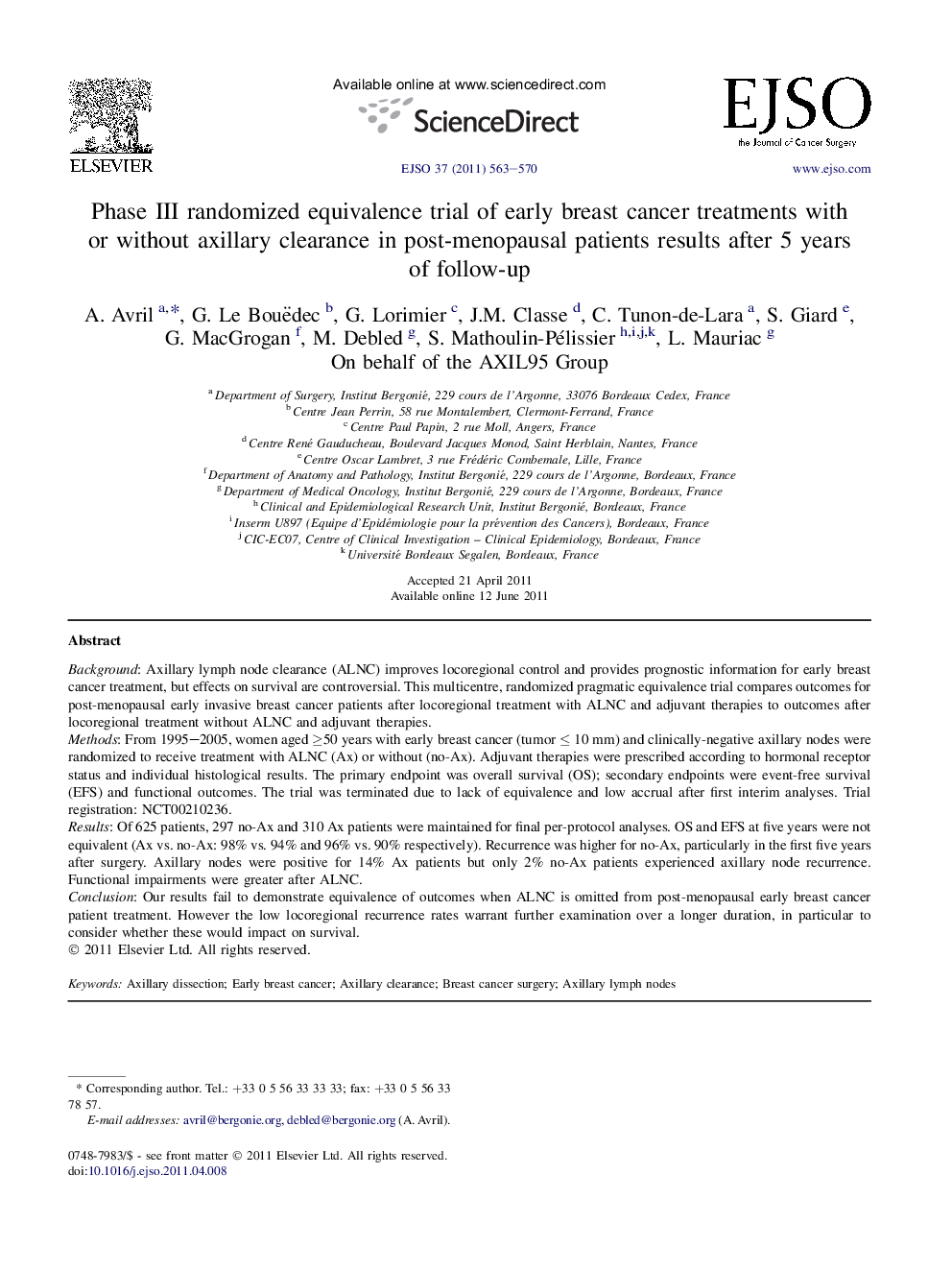| Article ID | Journal | Published Year | Pages | File Type |
|---|---|---|---|---|
| 3986152 | European Journal of Surgical Oncology (EJSO) | 2011 | 8 Pages |
BackgroundAxillary lymph node clearance (ALNC) improves locoregional control and provides prognostic information for early breast cancer treatment, but effects on survival are controversial. This multicentre, randomized pragmatic equivalence trial compares outcomes for post-menopausal early invasive breast cancer patients after locoregional treatment with ALNC and adjuvant therapies to outcomes after locoregional treatment without ALNC and adjuvant therapies.MethodsFrom 1995–2005, women aged ≥50 years with early breast cancer (tumor ≤ 10 mm) and clinically-negative axillary nodes were randomized to receive treatment with ALNC (Ax) or without (no-Ax). Adjuvant therapies were prescribed according to hormonal receptor status and individual histological results. The primary endpoint was overall survival (OS); secondary endpoints were event-free survival (EFS) and functional outcomes. The trial was terminated due to lack of equivalence and low accrual after first interim analyses. Trial registration: NCT00210236.ResultsOf 625 patients, 297 no-Ax and 310 Ax patients were maintained for final per-protocol analyses. OS and EFS at five years were not equivalent (Ax vs. no-Ax: 98% vs. 94% and 96% vs. 90% respectively). Recurrence was higher for no-Ax, particularly in the first five years after surgery. Axillary nodes were positive for 14% Ax patients but only 2% no-Ax patients experienced axillary node recurrence. Functional impairments were greater after ALNC.ConclusionOur results fail to demonstrate equivalence of outcomes when ALNC is omitted from post-menopausal early breast cancer patient treatment. However the low locoregional recurrence rates warrant further examination over a longer duration, in particular to consider whether these would impact on survival.
